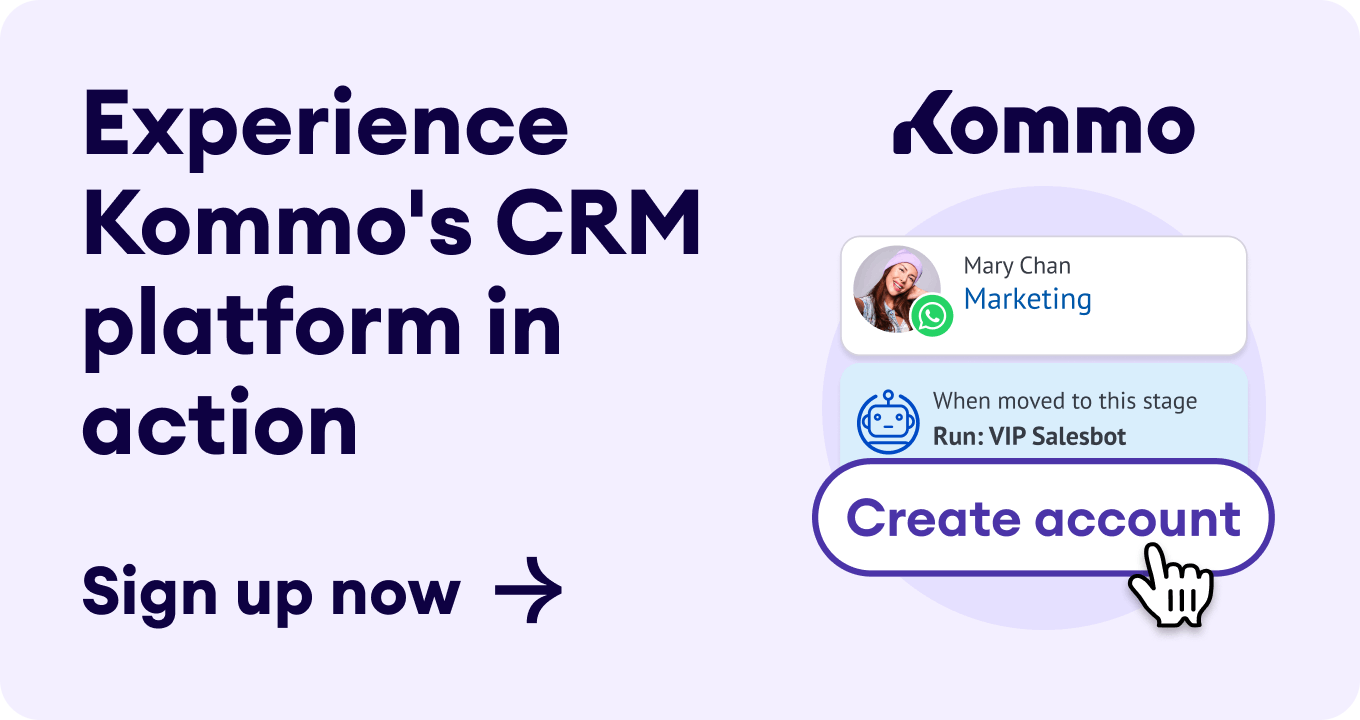To convert leads into clients and make sales, it’s important to correctly manage your sales and marketing expenses, because any unnecessary cost can make you burn money. When it comes to managing small business the customer is your most precious asset, your first priority. Today business is about customer relationship. Spending a good marketing budget is essential to reaching your target audience that may provide you with leads, your potential buyers.
But there is much more that happens before you gain a customer 🎯. Despite how fine tuned your marketing is, if leads are not becoming buyers your missing all that opportunity. So where is all that marketing money going? This research was able to point out the flaws that I see all too often in small businesses and reveal the easy fix for them.
The Research: How to use your marketing expenses
This idea came to me when I had an interesting experience trying to enroll in a new fitness club. Nowadays, the fitness industry is having its best time ever: everyone wants to be healthy, fit and beautiful. No wonder the competition among gyms is so high and there is such a great variety of fitness centers trying to get customers.
Customers who will pay on average $75 a month, not including personal training sessions, gym accessories, sport drinks and etc.
Marketing expenses examples we can list with it
When I was making my choice on the right gym, I did what anyone would do. I went online and I Googled it. I immediately checked the first searches Google Adwords offered. Google Adwords campaigns are excellent marketing expenses examples, through them, you can attract visitors, raise your clicks rate, get new leads and make conversions on your landing pages.
I am one of the web-users who click the sponsored ads, as I believe if the company uses their marketing budget to get my click they must have something good to offer 👌.
There are other marketing expenses examples that we can list. They can be:
-
Marketing budget for social media paid advertising
- Costs of production for videos, jingles and post creation
- Content creation for blog posts and scrip for videos
- Softwares you use to search keywords, trends, data and relevant information for your campaigns
Actually, everything that you have to pay to make your strategies work can be considered marketing expenses examples, even costs that we don’t think of at first, but can be relevant in the long term 🧐. For example: professional photographer to take the campaigns photos 📷, phone plan to get in touch with the leads, website and landing page hosting, and…every other things.
Integrate sales and marketing expenses
Remember that marketing alone doesn't make sales, you have to integrate the process of sales and marketing to have results on your strategies. With the marketing budget, it isn't different.
Sales and marketing expenses are the expenses used both on marketing and sales processes. They must be planned together, for you and your team to achieve your marketing goals. Those expenses are the costs used on internal and external processes and strategies, like marketing campaigns, CRM tools used to manage visitors, salesperson salaries, automated chatbots and third party services…
The gym was good at using its marketing budget, but when I went to the sales process, they failed 🤦♀️. Limited my search to two appealing fitness clubs. Then I visited their websites where I filled out a web-form, inquiring for a call back with more information on their fitness center. When none of two gyms I left my inquiry called back I just wondered what was the point of the pricey advertising.
Not planning makes you burn marketing budget
I was confused, why would a company spend their marketing budget and not give their leads the time of day? 😱 Especially when it comes to a good lead, like me, who is looking to pay for a yearlong membership (to keep myself motivated).
These companies are paying double and triple for their advertising and despite that failed to gain a customer. Further research revealed that the company’s problem does not lay in the pure carelessness but a lack of customer relationship management.
Where does marketing budget goes to die
For my research I selected 20 gyms and fitness clubs in the Bay Area, who spend their marketing budget on Google Adwords to find what could be causing them to lose leads 👎. The bottom line is companies who use sponsored ads for marketing expect more clicks which means more customers, but that only works if the companies work with every lead. Otherwise that high priced advertising is getting you leads but no customers.
Acting as a secret shopper I contacted each gym with a simple story “I am very interested in buying the annual membership at your fitness club”. This way, I could check if their sales and marketing expenses were being well used. 🔍
The first step was filling out a webform on each company’s website, where I made sure to mention that I am particularly interested in buying the membership for the whole year (making myself a desirable hot lead🔥), and that I would be waiting for them to call me back as soon as possible.
Lack of web-form can be terrible
Three out of 20 researched fitness clubs didn’t have a web-form on their website 🤦♀️. We listed some marketing expenses examples before, that include advertisements on Google and Social Medias. But depending on your business none of them will be useful without a good web-form.
Out of 17 gyms that received my web inquiry, only 6 (!!!) called back within the first 24 hours. As for the others: three sent me an email with an invitation to visit facilities, 3 more just sent me a general email with the suggestion to call them myself, and the other five didn’t react at all.
Never use general email for follow-up. You can use a general template, but always use a personalized template for each lead, otherwise, you will burn your sales and marketing expenses.
Lack of follow-up is also terrible
During my phone conversation with the six who did respond I was challenging the sales managers with questions about the facilities and pricing, and at the end asked them to call me back in a week to follow-up on my decision to become a member.
I didn’t stop there. I called the other 14 research participants who failed to communicate earlier: 3 of them who didn’t have a web-form, 6 who just wrote an email, and 5 who didn’t react to my inquiry at all 😫.
Two of the gyms who only sent emails were just impossible to get ahold of and after attempting to contact them several times I left a voicemail; again stating I wanted a year membership and asked them to call me back. If you want to make good use of your marketing budget, having a follow-up strategy is very important.
I gave all 20 participants the same opportunity for a potential yearlong buyer and all they had to do was remember to call me back on the day we both agreed on.
Now, are you ready to hear the outcome?
With the following results, we can see what happens when you are managing a marketing budget and forget the sales process. Only 40% of gyms followed up with me in a week. Eight out of 20 research contestants called back on the specified day. Three additional gyms finally called me back, 5 to 6 days after the agreed date passed.
Others had bigger issues like insistent sales managers, who didn’t want to talk on the phone no matter what, and kept sending email invitations with their availability 🤦♀️, so I can find time that works best for them.
And when it came down to satisfaction on every level only 3 companies were actually working with leads on an excellent level. Only three, who reacted on a web-form within 24 hours, as well as asked a lot of questions regarding my interest in the gym, and also called back in a week. So, only three gyms properly knew how to work with a lead.
And two of the research participants showed some fantastically bad work with the lead: they did not react on my web-form, when I called myself and tried asking questions, I was told to just come in, if I’d like to. Upon my request to take my phone number and to call me back I was told “we don’t have this feature here” but if I decide on their gym, I should call them back. Yes, please!
So, here’s the mystery: how come companies spend such a huge amount of money on advertising like Google Ads and not work with leads they are paying to get? 🤔
Managing a marketing budget correctly
So, what makes a real difference on managing a marketing budget? As we could see, it’s on the way you manage your leads and clientes. Customer success is not based on the marketing budget companies spend, but on their Customer Relationship Management (CRM) 🚀. It is this software that makes a difference in turning leads into buyers.
If all of the research participants had great CRM-software the sales managers would have a chance for structured work with the lead. Here is what could have been done for managing a marketing budget on the right way:
- Collect leads primarily with web-forms, which would give you a better opportunity for gathering contact information, be advised against issues, and get prepared for the call.
- Work with the leads closely while maximizing efficiency: Make sure your calls are happening on time, schedule visits and appointments and negotiate the cost.
- Don’t try just to sell, but understand what issue you are resolving for your client.
- Set-up reminders and keep promises you give, give follow-up calls to every lead your marketing is bringing you.
- If needed, make a personalized offer so that they wouldn’t lose a client
Just three easy steps can help you grow the business and justify the amount of money you spend on marketing, by working closely with every lead. If you are a small business, want to optimize your marketing expenses and are working hard to get more customers- then you probably would greatly benefit from having lead management service.
Make a personal sale with Kommo
Kommo is a pioneering Messenger Based Sales CRM software that helps businesses achieve more sales and create long-lasting relationships with their customers. It is a tool that enables companies to reach better results and increase their profits.





